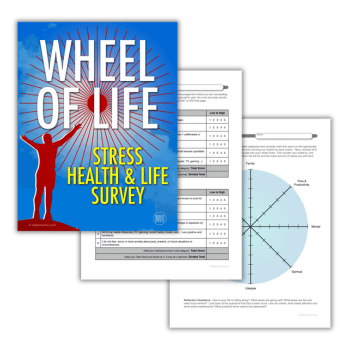From COVID to CAMHS – How to tell when your school needs specialist mental health support

Schools can do lots to support their students’ mental health, but at a certain point, they may need help from external agencies. Adam Riches looks at what usually happens next…

- by Adam Riches
- Teacher, writer and educational consultant

In schools, we’re equipped to support students in a number of different ways. Sometimes, however, there may be times where we need to seek additional support from external agencies.
Following the COVID pandemic, there has been a sharp rise in the number of school students presenting with mental health needs. Consequently, the burden placed on the educational sector to triage these students has notably increased – yet there comes a point where, if a student’s mental health support needs outweigh a school’s internal training and experience, they will need to be referred for additional mental health support.
Where does that line lie? What is our duty to students? What can we do for them in school, and what can we not?
Teachers within schools are well-placed to observe children day-to-day, and identify behaviour that suggests a child may be suffering from a mental health problem, or be at risk of developing one.
While the government continues to educate teachers on mental health difficulties in children and young adults, it must be noted that teachers aren’t professional psychologists. They are under no duty to identify mental health difficulties, nor should they be. What teachers can provide, however, is multilayered support prior to cases being escalated to an external agency.
Pastoral support teams
The strength of the support available in a school relies heavily on the quality of its communication and interpersonal exchanges. Students need to know who they can talk to if they have an issue or a concern, and who they can speak to if they feel that their mental health is suffering or declining.
Quite often, the first port of call will be a school’s pastoral team, who should be able to effectively triage the students’ needs. An inclusion team may also be able to help students in the first instance, providing advice and communicating with home, which can often significantly help students suffering from anxiety and stress.
Throughout, communication really is key. There must be clear lines of discussion that leave no space for ambiguity.
Counselling services
For students whose needs can’t be met through pastoral support alone, additional help may be required. Many schools now retain trained on-site counsellors, or have arrangements in place to call in independent councillors when needed. There are also a number of programmes available that provide support for helping students overcome mental health issues, such as Suffolk Young People’s Health Project, AKA 4YP.
While some of these organisations are charitable, schools may be required to pay for their services in some cases. Since schools aren’t legally obliged to offer school-based counselling, there’s no automatic right for a child to access counselling for mental health problems within their place of learning.
Back in 2016, the DfE issued an advice document titled ‘Counselling in schools: a blueprint for the future’ which outlined a series of strategies that primary and secondary schools could use to set up or improve their counselling services. If your school currently lacks any in-house counselling support, it may be helpful to refer to that document’s guidance on getting such provision off the ground.
Interventions and workshops
Students may be exhibiting mental health issues due to them not possessing the skills required to cope with certain situations. Until they learn more about themselves, the challenges they face and how those challenges might be overcome, they’ll have a tough road ahead of them.
Providing one-to-one workshops on resilience, mindset, anxiety and other aspects of mental health will give young people a better chance of understanding the psychological processes affecting them. Removing the taboo around mental health is a huge challenge, but as we educate young people in such matters, we’ll often find that these kinds of worries can be quickly dissipated.
When to seek additional support
We might be well-placed to identify mental health difficulties and provide support for lower level conditions, but it’s important that teachers are able to recognise when they’re not adequately equipped to provide longer term support – especially when it comes to more serious mental health issues. Put simply, we must ensure that we do everything we can to ensure that our learners are kept safe and well-supported.
Trending
Schools also have a duty of care towards any members of staff dealing with students experiencing mental health issues. The teacher and support staff burden when dealing with such cases can be incredibly taxing, particularly with more difficult cases. Given how damaging professional fatigue can be, schools must therefore consider the knock-on effects of students’ mental health on that of staff.
There’s no clear-cut answer as to when external agencies should be involved in a given case, but it’s prudent to contact the relevant service(s) as soon as you deem it necessary, and potentially before required, on the basis of your professional judgement.
The reality of external agencies
The NHS provides support for young people through the Child and Adolescent Mental Health Services. CAMHS is the collective name for specialist NHS children and young people’s mental health services that can offer a variety of trained mental health professionals such as social workers, occupational therapists, psychologists and many more.
The reality of using these services, or at least making a referral to them, must be noted though. Waiting times for CAMHS can be long – in some cases seriously long. Those of us on the ground, working with students who have significant mental health issues, will tend to need help quickly, not in a year’s time.
GPs can provide some level of support with mental health, and may be able to work in tandem with a CAMHS referral. In the short term, some GPs can be hugely helpful to schools. Again, clear communication with parents is key to ensuring that the young people in your school get what they need quickly. While schools can broker referrals, it’s usually parental support that’s the deciding factor in such referrals succeeding in the long run.
Can schools still help after referrals have been made?
Schools can and should continue to support young people after a referral has been made. As noted above, waiting times for external agencies can potentially be measured in months, thus leaving schools with the task of providing some form of practical support until further help becomes available.
Our continued responsibility for the welfare of learners means that often, mental health issues will remain the responsibility of schools in many ways, even after treatment has started or concluded.
At all points, it’s of paramount importance that schools communicate and collaborate with external agencies on the continuing and changing needs of any students receiving mental health support. Regular meetings with the relevant professionals should ensure that the support provided is sustainable over time. In turn, school staff must be able to build a picture of how to support students who have previously been referred to external agencies once their time with said agencies has concluded.
Final words
Ultimately, it’s schools that will be left providing longer term support, given how external agencies will typically only be providing additional help for a finite amount of time.
Metal health in schools is something that needs to be carefully managed. External agencies are available, but we can’t rely on being able to receive their help immediately.
Schools must therefore have an effective infrastructure in place for supporting any and all learners affected by mental health difficulties. Because in reality, we’re all on the front lines, and will continue to be for the foreseeable future.
Adam Riches is a senior leader for teaching and learning and author of the book Teach Smarter: Efficient and Effective Strategies for Early Career Teachers (£16.99, Routledge); follow him at @teachmrriches







